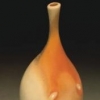
Appsitude
-
Posts
63 -
Joined
-
Last visited
Reputation Activity
-
 Appsitude got a reaction from ss2player in 2015 Applicant Profiles and Admissions Results
Appsitude got a reaction from ss2player in 2015 Applicant Profiles and Admissions Results
Woops I didn't see that chart, but for the most part that is correct. The one bedrooms that are 2200 are couples housing so it averages to ~1100 a person. About half of the first years currently live alone and on average pay ~1000-1100 near Parnassus. Some couples are paying less due to sharing a one bedroom. Honestly, the campus housing is nice but it is mainly transitional housing and finding housing near UCSF is difficult, but definitely possible. I would prefer an awesome city that isn't so damned expensive though haha.
Cost of housing was my biggest worry coming out here, but UCSF does everything in their power to make that a lesser worry so you can stay focused on your research
And for whoever asked about BMS invites: The large majority of interviews have been sent out but the list has not been finalized yet so there is still hope.
-
 Appsitude got a reaction from NWFreeheel11 in 2015 Applicant Profiles and Admissions Results
Appsitude got a reaction from NWFreeheel11 in 2015 Applicant Profiles and Admissions Results
That...is not true. The graduate student housing at Mission Bay runs from 950-1400 depending on your room. At Parnassus, it falls in the same price range. All graduate housing is apartments/houses. I'm able to save money each month, you just have to be smart about your expenses. Sure SF is expensive, but it is not undoable by any means.
-
 Appsitude got a reaction from amertume in 2015 Applicant Profiles and Admissions Results
Appsitude got a reaction from amertume in 2015 Applicant Profiles and Admissions Results
That...is not true. The graduate student housing at Mission Bay runs from 950-1400 depending on your room. At Parnassus, it falls in the same price range. All graduate housing is apartments/houses. I'm able to save money each month, you just have to be smart about your expenses. Sure SF is expensive, but it is not undoable by any means.
-
 Appsitude got a reaction from notJustin in How much does GPA & GRE matter after you have been invited to interview?
Appsitude got a reaction from notJustin in How much does GPA & GRE matter after you have been invited to interview?
The main problem is people getting drunk and making a fool of themselves. If you know you can handle your alcohol, getting a little drunk won't hurt your chances and may help you out with the grad students. However despite what you might think there are always a few recruits who do get drunk and act creepy/sleep with others/pass out or throw up everywhere/get racist and that will almost automatically ruin your chances.
But honestly, moderation is key with alcohol at interviews. It is offered a lot so be sure to curb your thirst.
-
 Appsitude got a reaction from Dreams of the North in 2015 Applicant Profiles and Admissions Results
Appsitude got a reaction from Dreams of the North in 2015 Applicant Profiles and Admissions Results
Rejections will be sent out after the interview commitment deadline. The week of January 5th would be prime time for rejections.
-
 Appsitude got a reaction from nutellarain in 2015 Applicant Profiles and Admissions Results
Appsitude got a reaction from nutellarain in 2015 Applicant Profiles and Admissions Results
It's fantastic. Research is great, coursework is great, atmosphere is great, SF is great. And you never know what can happen with the interview cycle!
-
 Appsitude got a reaction from amertume in 2015 Applicant Profiles and Admissions Results
Appsitude got a reaction from amertume in 2015 Applicant Profiles and Admissions Results
Don't worry, interview invites are still rolling out for BMS. Lots of problems this year due to a new application system that have delayed the processing of applications. By the end of tomorrow the large majority of invites will be sent out, but there may be some trickle-down over the next week or so. Good luck!
-
 Appsitude got a reaction from TheDefeater in Potential Interview Questions
Appsitude got a reaction from TheDefeater in Potential Interview Questions
Here is a list of questions that I remember being asked:
1) What research did you do as an undergraduate?/Explain your research experience.
2) Why do you want a PhD?
3) Why are you interested in our institution?
4) Why are you interested in this specific program?
5) What are your research interests?/What research do you want to do in the future?
6) Do you have any reservations/worries about entering a PhD program?
7) What interests you about my research?/What do you know about my research?
8) What drives you as a scientist?
9) What other programs are you applying to?
10) What interests you about the city the institution is located in? (and questions related to this!)
11) What do you do in your free time?
Of these, #1, #3 and #4, and #11 I were asked at every single interview.
Honestly, the biggest part of the interviews are 1) being able to honestly talk about your research, 2) being excited, 3) asking questions, and 4) being able to communicate that there is more to you than just a love for science. My best interviews were interviews where we talked about science for 5-10 minutes than about my background/hobbies for the rest of the time.
Also, each PI/student who interviews you will do things different. You MAY get grilled on your research or (very rarely) that specific PIs research. They may expect you to know NOTHING about them. You may get a PI who does not want to talk about science and instead just get to know you.
Overall, interview weekends are a blast, and the individual interviews are fun and helpful for deciding your interests and your feelings about the program.
Hope this helps!
-
 Appsitude got a reaction from poweredbycoldfusion in Post Interview Acceptance Rates
Appsitude got a reaction from poweredbycoldfusion in Post Interview Acceptance Rates
I know Yale BBS is ~50% of interviewees are accepted, but that may vary year to year. They are one of the more selective post-interview programs to my knowledge.
UCSF BMS this year is interviewing ~80 people looking to accept at max 60, for approximately a 75% post-interview acceptance rate. You'll find most schools are in this range.
-
 Appsitude got a reaction from Biohacker in Who is getting excited!?
Appsitude got a reaction from Biohacker in Who is getting excited!?
On the flipside, I have friends who took multiple years off after undergrad (some up to 7!) and are having a tough time with graduate level coursework now that they are back in school. I came straight out of undergrad and haven't had many problems, but I still think the ideal situation is to take 1-2 years off and do research/tech full time after undegrad (but to each their own!)
-
 Appsitude got a reaction from mop in Who is getting excited!?
Appsitude got a reaction from mop in Who is getting excited!?
On the flipside, I have friends who took multiple years off after undergrad (some up to 7!) and are having a tough time with graduate level coursework now that they are back in school. I came straight out of undergrad and haven't had many problems, but I still think the ideal situation is to take 1-2 years off and do research/tech full time after undegrad (but to each their own!)
-
 Appsitude got a reaction from poweredbycoldfusion in Who is getting excited!?
Appsitude got a reaction from poweredbycoldfusion in Who is getting excited!?
On the flipside, I have friends who took multiple years off after undergrad (some up to 7!) and are having a tough time with graduate level coursework now that they are back in school. I came straight out of undergrad and haven't had many problems, but I still think the ideal situation is to take 1-2 years off and do research/tech full time after undegrad (but to each their own!)
-
 Appsitude got a reaction from lab ratta-tat-tat in working as lab tech before phD
Appsitude got a reaction from lab ratta-tat-tat in working as lab tech before phD
I agree with AnonLady. Working as a tech before grad school is quickly becoming the norm and is a great way to not only boost your credentials but also to determine whether grad school really is for you. Finding a tech position can be very difficult, but it is not impossible. Reach out directly to professors you are interested in, look at science jobs websites, and talk to professors at your school for advice. As long as you have an interest in learning + some luck you should be able to find a position after some looking.
-
 Appsitude got a reaction from poweredbycoldfusion in No Publication, Should Worry or Not?
Appsitude got a reaction from poweredbycoldfusion in No Publication, Should Worry or Not?
Your stats look fine. Similar GREs to what I had, so that shouldn't be a problem. I didn't have any publications and it turned out fine. It is more important that you get good letters of rec from your mentors + are able to communicate what you learned during your time in the lab. That is infinitely more helpful than being a 7th author on a publication.
-
 Appsitude got a reaction from poweredbycoldfusion in Good GPA, but lack Research
Appsitude got a reaction from poweredbycoldfusion in Good GPA, but lack Research
Honestly, I would not recommend applying to a PhD program if you have no full-time research experience. If you are interested, I would highly recommend working as a technician or research associate for a year or two at a top tier institution before you decide whether to get a PhD. Research can be appealing on the outside, but once you get into the day-to-day rigors and challenges, it may lose its appeal quickly to you. Before you dive head first into a PhD program, you need to be able to be honest with yourself and make an informed decision. Even if you are able to get a full summer of research + research your senior year of undergrad, you should have enough experience to know what you want to do.
From an admission's standpoint, coming from a small college without a lot of research opportunities won't hurt you too much. If you supplement your application with a summer research position and get a lot out of it (such as making a good impression on your PI), you will be surprised how far one letter can get you. There are people in my program who only had minimal research experience (one summer + a semester in undergrad) but were still able to get into top 10 programs across the country.
But seriously though, before you even think about applying for PhD programs I would get some serious research experience under your belt. Good luck!!!
-
 Appsitude got a reaction from jezzie05 in Potential Interview Questions
Appsitude got a reaction from jezzie05 in Potential Interview Questions
Here is a list of questions that I remember being asked:
1) What research did you do as an undergraduate?/Explain your research experience.
2) Why do you want a PhD?
3) Why are you interested in our institution?
4) Why are you interested in this specific program?
5) What are your research interests?/What research do you want to do in the future?
6) Do you have any reservations/worries about entering a PhD program?
7) What interests you about my research?/What do you know about my research?
8) What drives you as a scientist?
9) What other programs are you applying to?
10) What interests you about the city the institution is located in? (and questions related to this!)
11) What do you do in your free time?
Of these, #1, #3 and #4, and #11 I were asked at every single interview.
Honestly, the biggest part of the interviews are 1) being able to honestly talk about your research, 2) being excited, 3) asking questions, and 4) being able to communicate that there is more to you than just a love for science. My best interviews were interviews where we talked about science for 5-10 minutes than about my background/hobbies for the rest of the time.
Also, each PI/student who interviews you will do things different. You MAY get grilled on your research or (very rarely) that specific PIs research. They may expect you to know NOTHING about them. You may get a PI who does not want to talk about science and instead just get to know you.
Overall, interview weekends are a blast, and the individual interviews are fun and helpful for deciding your interests and your feelings about the program.
Hope this helps!
-
 Appsitude got a reaction from ss2player in Meeting a professor about being a summer student, tips?
Appsitude got a reaction from ss2player in Meeting a professor about being a summer student, tips?
One thing to add: Make sure to communicate why you are interested in research/joining a lab in general. It'll be much easier to get a position if you can actually communicate that you are interested in doing research, rather than just checking a box on an application.
-
 Appsitude got a reaction from Ascinflamm in Potential Interview Questions
Appsitude got a reaction from Ascinflamm in Potential Interview Questions
Here is a list of questions that I remember being asked:
1) What research did you do as an undergraduate?/Explain your research experience.
2) Why do you want a PhD?
3) Why are you interested in our institution?
4) Why are you interested in this specific program?
5) What are your research interests?/What research do you want to do in the future?
6) Do you have any reservations/worries about entering a PhD program?
7) What interests you about my research?/What do you know about my research?
8) What drives you as a scientist?
9) What other programs are you applying to?
10) What interests you about the city the institution is located in? (and questions related to this!)
11) What do you do in your free time?
Of these, #1, #3 and #4, and #11 I were asked at every single interview.
Honestly, the biggest part of the interviews are 1) being able to honestly talk about your research, 2) being excited, 3) asking questions, and 4) being able to communicate that there is more to you than just a love for science. My best interviews were interviews where we talked about science for 5-10 minutes than about my background/hobbies for the rest of the time.
Also, each PI/student who interviews you will do things different. You MAY get grilled on your research or (very rarely) that specific PIs research. They may expect you to know NOTHING about them. You may get a PI who does not want to talk about science and instead just get to know you.
Overall, interview weekends are a blast, and the individual interviews are fun and helpful for deciding your interests and your feelings about the program.
Hope this helps!
-
 Appsitude got a reaction from notsaxophones in Potential Interview Questions
Appsitude got a reaction from notsaxophones in Potential Interview Questions
Here is a list of questions that I remember being asked:
1) What research did you do as an undergraduate?/Explain your research experience.
2) Why do you want a PhD?
3) Why are you interested in our institution?
4) Why are you interested in this specific program?
5) What are your research interests?/What research do you want to do in the future?
6) Do you have any reservations/worries about entering a PhD program?
7) What interests you about my research?/What do you know about my research?
8) What drives you as a scientist?
9) What other programs are you applying to?
10) What interests you about the city the institution is located in? (and questions related to this!)
11) What do you do in your free time?
Of these, #1, #3 and #4, and #11 I were asked at every single interview.
Honestly, the biggest part of the interviews are 1) being able to honestly talk about your research, 2) being excited, 3) asking questions, and 4) being able to communicate that there is more to you than just a love for science. My best interviews were interviews where we talked about science for 5-10 minutes than about my background/hobbies for the rest of the time.
Also, each PI/student who interviews you will do things different. You MAY get grilled on your research or (very rarely) that specific PIs research. They may expect you to know NOTHING about them. You may get a PI who does not want to talk about science and instead just get to know you.
Overall, interview weekends are a blast, and the individual interviews are fun and helpful for deciding your interests and your feelings about the program.
Hope this helps!
-
 Appsitude reacted to tuckbro in Why do they want to know which other schools I'm applying?
Appsitude reacted to tuckbro in Why do they want to know which other schools I'm applying?
I kind of thought they usd it to strategize. I feel like they know when the interview weekends are for the other schools and time their decisions accordingly. I received word from Rice a few days before heading to MIT and had a decision from MIT to ponder just as I was preparing to leave for JHU. I definitely viewed JHU very differently after getting an MIT acceptance. They weren't top choice after that.
Then again, it could be just random timing and not strategy at all. Haha
-
 Appsitude got a reaction from Taeyers in Why do they want to know which other schools I'm applying?
Appsitude got a reaction from Taeyers in Why do they want to know which other schools I'm applying?
It is very common in biology/biomedical sciences to be asked where else you are applying to.
There are a couple reasons for this:
1) As others have said, if you are deciding between similarly ranked schools (and the school you are applying to knows this), you may be offered a fellowship to make the deal more sweet.
2) Institutional research and rankings take this information into account.
3) I had graduate students and professors genuinely curious about where I was applying as they had either gone through similar decisions or knew people at those institutions.
In general, don't worry if you get asked this. Just be sure to not gush about another university you applied to while at a different interview
-
 Appsitude got a reaction from rbear91 in 2015 Applicant Profiles and Admissions Results
Appsitude got a reaction from rbear91 in 2015 Applicant Profiles and Admissions Results
Just some advice from someone who went through the process last year:
1. Don't ever count yourself out from a particular school based on GPA, GRE scores, research experience, etc. I know plenty of people who were accepted at top programs with GPAs lower than 3.5 and plenty of people who were denied from programs with a perfect GPA.
2. Make sure you have three strong recommendation letters! Letters are by far the most important part of your application. Not all three letters have to be from previous research mentors (I went with 2 research mentors + a professor I was close with); however all three should be from professors who know you personally, know your motivations for attending graduate school, and can provide their own reasons as to why you would succeed in a graduate program.
3. Don't freak out over interviews! Interview weekends are by far the most fun you'll have throughout the entire process. Seriously, enjoy these weekends and use them to learn about the program and whether you fit in both personally and research-wise. It's very tempting to over-prepare and focus so much on nailing the interview that you act unnatural/not like yourself. If you are offered an interview at a school, that school already views you as someone who could succeed in graduate school, they just want to ensure that their program is the best fit for you (and vice versa).
Feel free to ask me any questions about the whole process! Have fun!
-
 Appsitude got a reaction from rexzeppelin in 2014 Applicant Profiles and Admissions Results
Appsitude got a reaction from rexzeppelin in 2014 Applicant Profiles and Admissions Results
It came down to a few things:
1) I felt like I connected better to future PIs at UCSF compared to Harvard. Faculty at both schools do amazing research, but the researchers I met with at UCSF genuinely seemed like they care about their grad students and want them to succeed. I didn't get this as much from Harvard.
2) In general, I liked the BMS students a LOT more than the BBS students -- might have been just me though!
3) People just seemed happier at UCSF compared to Harvard. That definitely factored into how I remembered each school after I left.
Are you leaning to one school over the other right now? For me it ended up coming down to UCSF, MIT, and Harvard and I'm stoked to be in San Fran next year!
Yeah, I liked the professors I talked to at Yale, but didn't really get along with the current graduate students. Also didn't like New Haven at all. Housing in San Francisco actually doesn't worry me too much...the way I see it is a lot of graduate students are currently doing it without being completely miserable so we should be able to too
-

-
 Appsitude got a reaction from blinchik in Young Biomed/Bio PhD Applicant - Please Give Advice
Appsitude got a reaction from blinchik in Young Biomed/Bio PhD Applicant - Please Give Advice
I wouldn't worry too much about age! I am a younger applicant as well (just turned 21 before right before interviews) and, although I was the youngest applicant at most of my interviews, I didn't have any problems getting into great programs! One thing to know before going in is just about every professor will ask you about going into a PhD at such a young age...so make sure to have a good answer for that going in. I honestly don't think you will have a problem getting into a top program so I wouldn't worry too much -- good luck!









